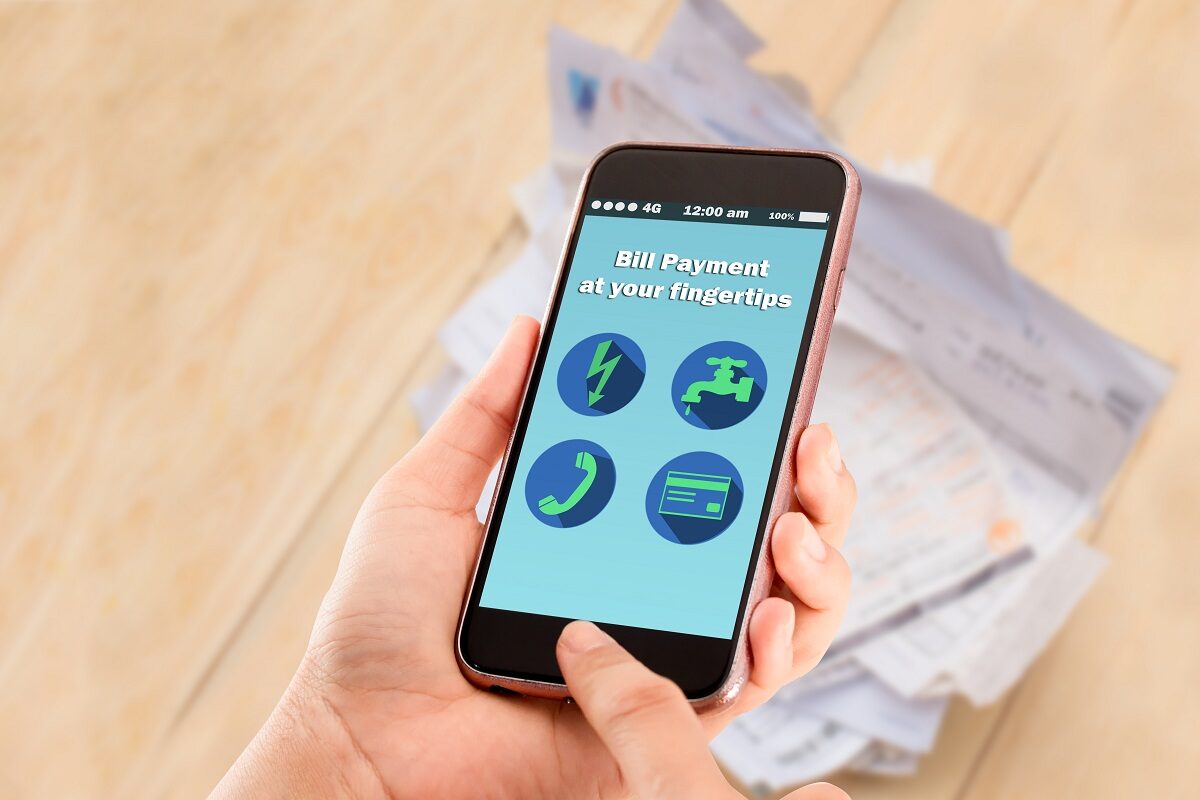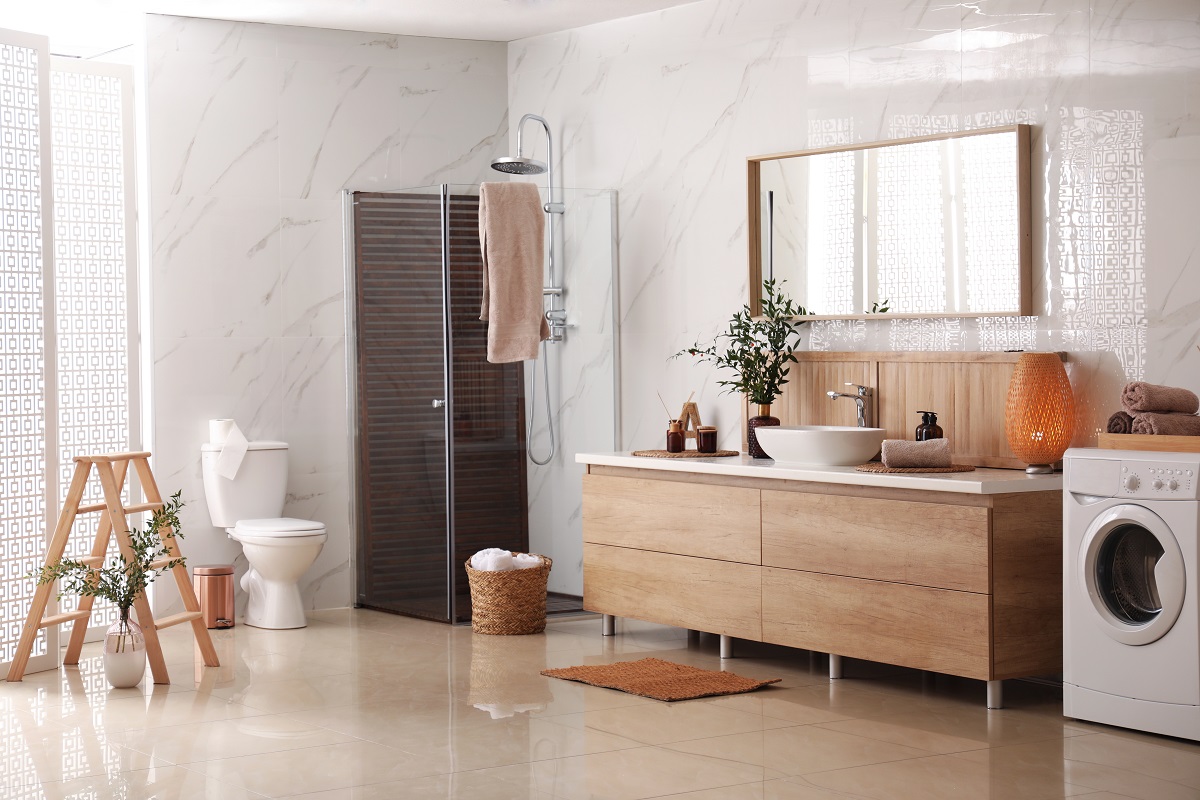
What Are Utilities? Tips on Saving

Apartment hunting within a budget can be tricky if you’re not sure what utilities you’re responsible for. While the monthly price of a rental is often your top concern, the cost of utilities can easily sneak up on you and put you over budget.
If you want to know how to save on these, the first step is to understand exactly how they work. Here’s more on what utilities are, the kinds you can expect to see on a listing, and ways to cut costs.
What’s Considered a Utility?
Utilities are services that provide basic necessities for everyday life. These can include:
- Electricity
- Gas
- Water
- Trash
- Recycling
These are all services that make a space functional, liveable, and comfortable. Heat and electricity regulate temperatures indoors and power appliances, while water and waste management services are essential for maintaining hygiene and cleanliness, among countless other uses.
Utility bills are what people pay for these services, and they may come at a flat monthly rate or fluctuate depending on your usage. For example, if you have a usage-based water bill, you could pay less for water than a neighbor who uses more H2O than you. Your location could impact what you pay as well since average prices vary between towns.
Some people also consider internet, phone service, and cable TV to be utilities — especially for people who work remote positions and rely on these services. For this reason, they’re often included on utility lists (though many landlords don’t view them as basic necessities).
Most Common Types of Utilities for Renters
Thinking about renting? Here are the types of utility services you can expect to find on an apartment listing and what they entail.
Electricity and Gas
Electricity and gas keep your lights on, heat running, and stove functioning. But people who use these resources less frequently — like those who turn their lights off earlier in the evening or who don’t often cook on their gas stove — can keep their bills lower. If you have a small household, are a conscientious energy user, and don’t have many appliances, you may spend less on these utility services.
Remember that where you live impacts these utility bills, as electricity and gas costs vary geographically. And your climate dictates your energy usage, since you’ll need more heat in cold places and air conditioning in hot locations. If you live in a location that has temperature variations from summer to winter, your home will require both heating and air conditioning, and your bills may spike during weather extremes or dip during spring and fall months.
Water
Regardless of where you live, you need water for things like:
- Toilets
- Washing machines
- Showers and bathtubs
- Faucets
- Drinking water
If any of your plumbing fixtures or appliances leak, it could lead to higher water bills and potentially even property damage if it isn’t handled appropriately. As soon as you notice a leak or a change in your water pressure, report it to your rental company or landlord quickly so they can fix the issue. A suspiciously high water bill might be an indicator that you have excess water dripping somewhere in the apartment.
Garbage and Recycling
Many renters don’t pay waste removal fees. Instead, those costs are often rolled into their apartment rent or covered by the landlord’s property taxes (if the city offers tax-funded waste removal). In instances where neither your landlord nor town offers waste removal services, you may need to pay private trash haulers to dispose of your garbage and recycling.
Renters everywhere should also be wary of tossing oversized items like an old couch or mattress along with their weekly waste pickup. Check your city’s laws beforehand about when and where you can discard large items. In some cases, you may need to pay for a disposal service to remove them correctly.
Internet and Cable TV
Apartment dwellers usually have to cover their cable and internet bills. Both are optional, but you’ll need these services to work from home, stream your favorite series, or catch a game on cable.
Factors like connection speed, cable plan style, and the average cost of these services in your area affect how much you pay, so compare providers to find one that fits your budget.
Note that you might be locked into using a particular service if your building or unit is already hooked up to it, so ask your landlord or property manager before signing a contract with another company.

Differences Among Apartment, House, and Business Utilities
What you might pay in utilities for an apartment varies greatly from what you would have to pay for a home or a business. Here are the three main categories of utilities by space and how they differ.
Apartment Utilities
Utilities can vary by building for apartment dwellers. Some rentals may only charge for rent, and others may require you to pay a portion or all of your utilities. For example, while some renters may have to pay for their gas and electricity while their landlords cover their water and waste management fees, others may be on the hook for gas, electricity, water, and waste. This can all differ based on your landlord, building type, and local laws.
That said, most tenants are solely responsible for paying their internet and cable bills since most landlords don’t view these as necessities.
House Utilities
Homeowners have a significant utility burden because houses are often larger than apartments, meaning you’ll have to use more resources to keep things running than you might in an apartment. Typical house utilities include water, waste, electricity, cable, and internet.
Business Utilities
Businesses that rent their spaces generally foot energy and technology bills, like WiFi or phone service, while their building owners may cover utilities like water and electricity. A business may also be on the hook for paying for its own waste removal, depending on its contract with the owner of the space. However, if a business owns its own space, it must pay all the utilities.
Do Some Rentals Offer Utilities?
Some rentals build the cost of utilities into what they charge for rent, though the landlord or building manager generally advertises this in the listing. If you don’t see anything about utilities, assume you’ll be responsible for paying them separately from your rent.
Other rentals, like Landing’s, clearly display how much you can expect to pay monthly for utilities and whether they are a fixed or fluctuating monthly cost. That way, you can factor these fees into your budget ahead of time.
Tips for Saving on Utilities
While your local utility companies and service providers may have fixed rates — like $0.15 per kilowatt-hour (kWh) of electricity or $1.50 for every 1,000 gallons of water you use — you can still save on your utility costs by managing your usage. Here are some tips for becoming a more conscientious consumer and reducing your bills.
Reinforce Your Windows
Drafty doors and windows will leak air-conditioned or heated air and let outside air seep in. This exchange changes the temp of your space and forces your appliances to work overtime to compensate.
To avoid this, put plastic sheets over your windows to trap heat inside, close up any gaps under your doors, and seal window frames with caulk (if your landlord permits). If you’re battling heat, keep curtains closed to block the sun during the hottest parts of the day.
Use a Fan or Space Heater
Instead of relying on air conditioning or electric heat, which are costly and consume a lot of resources, cool or warm up your space with targeted tools. Fans and space heaters direct cool air or warmth (respectively) to areas you’re currently using instead of climate-controlling your entire pad. In warmer areas like Atlanta, Orlando, or Jacksonville, break out the fans, and in cooler climates like Salt Lake City, keep a space heater handy.
Buy Energy-Efficient Gadgets
Many gadgets — like computers, fans, and washing machines — bear energy-efficient labels (like the Energy Star sticker), making them a utility-conscious person’s dream. These appliances use less energy than traditional ones, helping you save on utility bills. Look for that energy emblem when buying a new appliance, or find out if your new rental has them as you weigh your options.
You might also consider getting a smart energy power strip, which reduces the energy usage of the devices you plug into it. This is an especially savvy tip for series-bingers, gamers, and home chefs who frequently run their gadgets.
Watch Your Water
One toilet flush consumes nearly two gallons of water, while a shower head — even an energy-efficient one — pours out roughly two-and-a-half gallons per minute at a minimum. To cut down on utility costs and water waste, take shorter showers and use a bucket of water to catch the excess. You can then use that collected water for cleaning tasks, like mopping, flushing the toilet, or watering your plants.
You can also save water in the kitchen and laundry room by soaping up your dishes before rinsing them (instead of letting the tap pour out for an entire washing session) and only running the dishwasher or washing machine when you have full loads.
Find Your Next Living Space With Landing
Save yourself the hassle of paying monthly utility bills and trying to project these fees by living with Landing. Landing offers members flexible-lease apartments across the U.S. and wraps utilities fees into one fixed, easy-to-pay monthly bill that you know about ahead of time. And since Landing’s spaces are turnkey, you won’t have to set up your utilities. You can connect to the internet or take a hot shower on day one.









